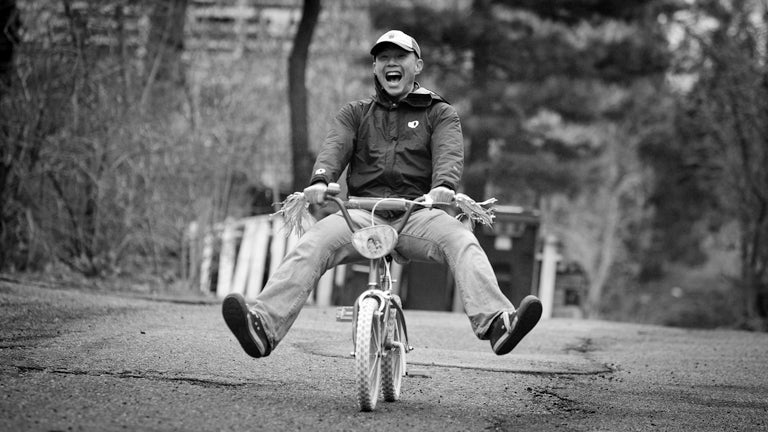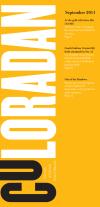
Allen Lim (MKines’97, PhDIntPhys’04) – Photo courtesy Jamie Kripke
Kevin Costner isn’t a sports scientist, but he played one on the big screen. Allen Lim (MKines’97, PhDIntPhys’04), on the other hand, is the real deal, and Costner can take some credit for that.
At the age of 12 or 13, Allen watched American Flyers, the 1985 bike-racing movie filmed partly in Colorado. Costner plays a sports physician who puts his brother through a stress test designed to gauge the rider’s fitness.
Fast-forward three decades. Allen is a sports physiologist for some of the biggest names in cycling, most recently seven-time Tour de France winner Lance Armstrong.
As director of sports science for Team RadioShack two years ago, Allen put Armstrong through a set of paces that could be fairly described as unusual.
Allen persuaded Armstrong to swallow a pill-sized thermometer to measure and transmit the champion’s core temperature during training rides in Hawaii. Allen also had Armstrong time-trialing along the Hawaiian coast with dozens of pieces of yarn [to indicate airflow] fluttering from his body suit.
Team RadioShack’s marquee rider endured a series of crashes and hard knocks in his final tour last year, but, assisted by Allen, RadioShack won the team competition.
He is known as the sports scientist who helped popularize the measurement of power output in cycling. His CU doctoral dissertation, which focused on biomechanics, aerodynamics and physiological responses to the stress of exertion in cycling, relied in part on measurements taken by the Saris CycleOps PowerTap, one of several power meters embraced by cyclists in the last decade. Power meters measure the human equivalent of horsepower.
Allen’s dissertation validated the measurements of PowerTap and found that power meters installed on bicycles provide a much more reliable indicator of a rider’s on-the-road performance than heart-rate monitors.
Allen says the sports-science community is still figuring out how to use all these data, but the general population could ultimately benefit as well.
“We need a universal metric for describing physical activity,” he says. That standardized unit could help people have a better grip on their level of exertion and health.
Although Allen loves what he’s doing, his longer-term goal is to become a Johnny Appleseed of physical fitness.
“If I can take what I’ve learned from elite athletes and apply it generally, I think people can lead better lives,” he says.
It is a daunting challenge. But a guy who persuades Lance Armstrong to go time-trialing in a Mardi Gras costume might have a good shot.






